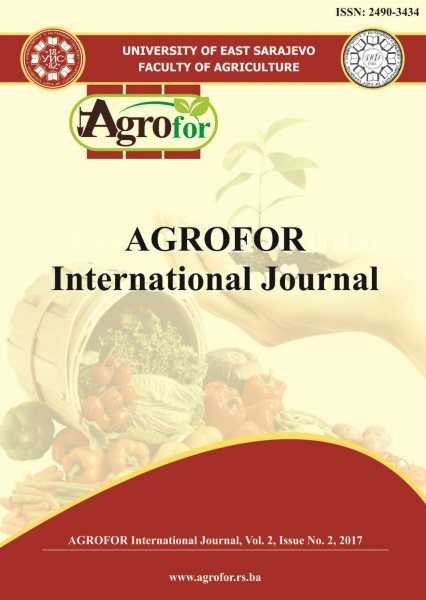BIOMASS PRODUCTION OF MORINGA (Moringa oleifera L.) AT VARIOUS SOWING DEPTHS IN A COARSE TEXTURED SOIL
DOI:
https://doi.org/10.7251/AGRENG1702005OAbstract
Different parts of Moringa (Moringa oleifera L.) plant, especially leaves, pods and
flowers, are usually processed for human and animal consumption as these parts
have been reported to be rich in nutrient elements that are essential for human and
animal health. Consequently, a 19-month field experiment was conducted to
determine effect of seed sowing depth on biomass production by moringa plant at
the Teaching and Research Farm of the University of Ibadan, Nigeria. Moringa
seeds were sown at five sowing depths of 1.5, 3.0, 5.0, 7.0 and 9.0 cm. The results
showed that sowing depth significantly (P ≤ 0.05) affected emergence of seeds 14
days after sowing in the following order: 1.5 > 3.0 > 5.0 > 7.0 > 9.0 cm sowing
depths. Also, number of branches, height, canopy cover and dry biomass of the
resulting seedlings were significantly influenced by seed sowing depths. Number
of branches, heights and dry biomass of seedlings from seeds sown at 1.5 and 3.0
cm depths were at par but were significantly superior to those seedlings from seeds
sown at 5.0, 7.0 and 9.0 cm depths. However, canopy cover was not in a definite
order. Data obtained in this study seemed to indicate that sowing moringa seeds
beyond 3.0 cm depth in the field may not be beneficial to moringa plant for organic
biomass production.

